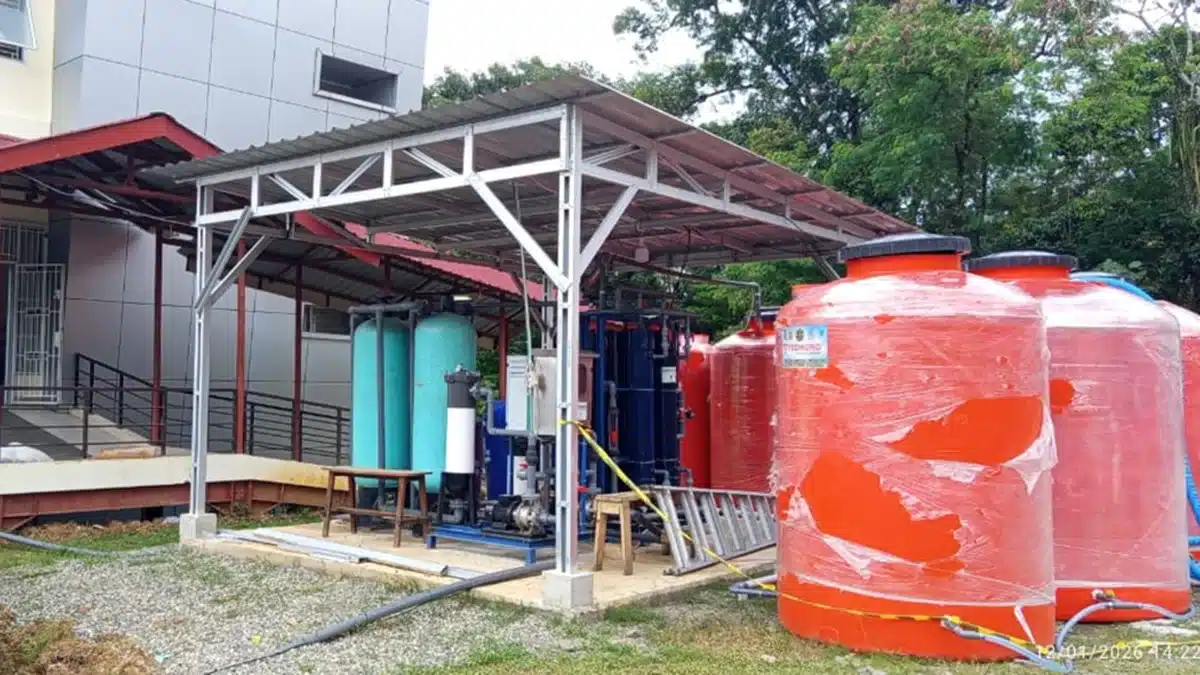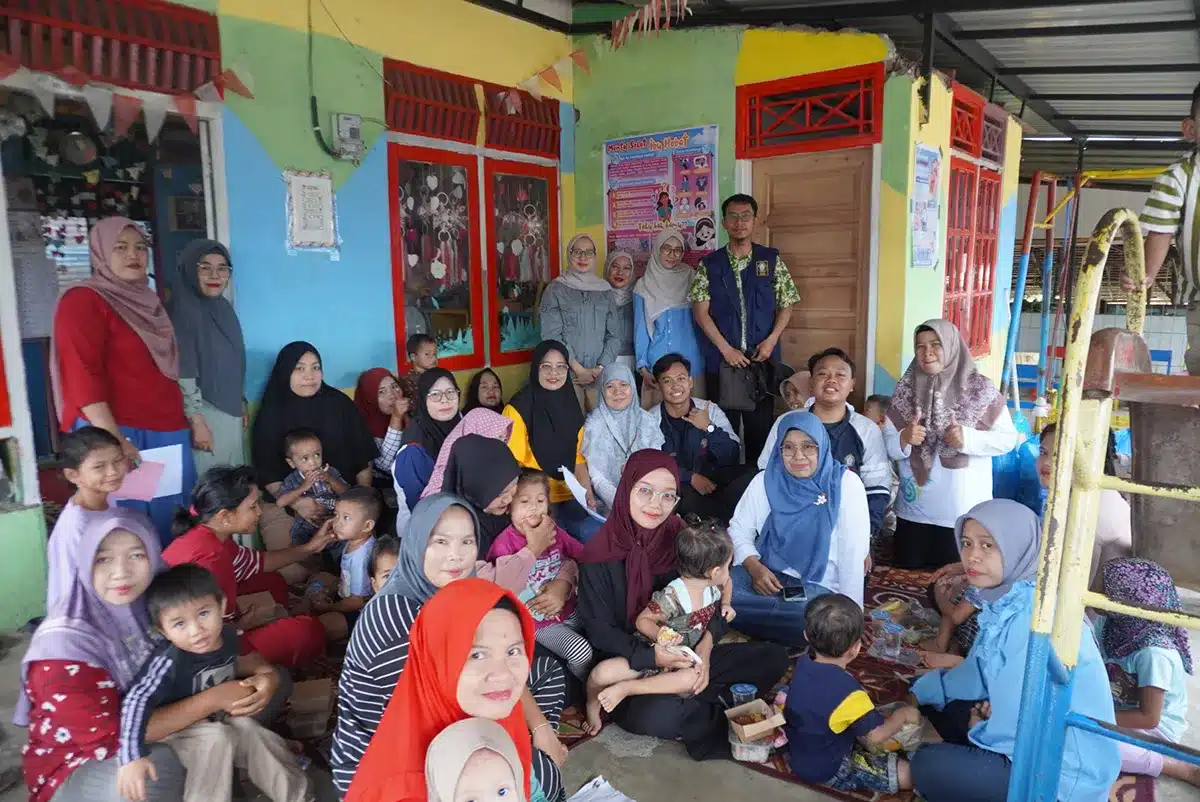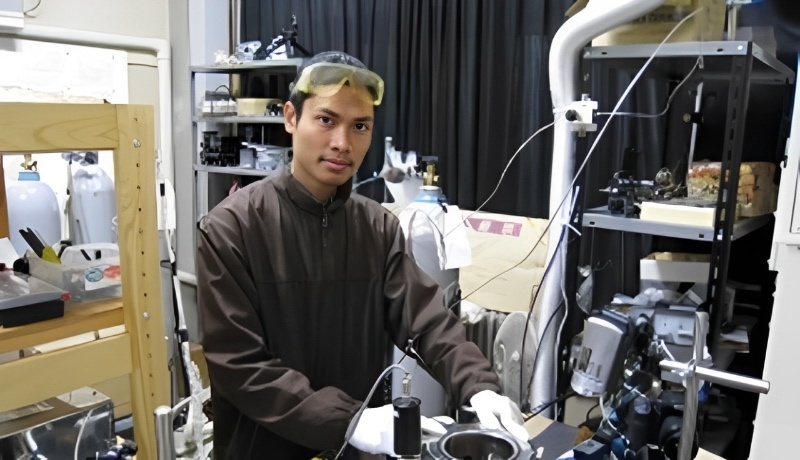UNDIP, Semarang (May 23, 2025) – The advancement of nanotechnology research at Universitas Diponegoro (UNDIP) continues to show real-world impact for both society and industry. One of the latest innovations comes from the university’s Laser and Advanced Nanotechnology Laboratory, which has developed the use of pure gold nanoparticles as an active ingredient in cosmetic products and medical applications. The research, led by Dr. Eng. Ali Khumaeni, has been intensively conducted over the past five years.
Gold nanoparticles, with a size of approximately 10 nanometers, can efficiently penetrate the skin and work directly at the cellular level. This property makes them a strong candidate for development in skin care products, regenerative therapies, and more accurate medical imaging.
One tangible outcome of this research is a collaboration between the UNDIP research team and a local cosmetics company, Salina Herbal. The partnership has resulted in a skincare serum that combines pure gold nanoparticles with herbal extract ingredients. The product has undergone multiple stages of testing, including toxicity tests, preliminary clinical trials, and in vivo assessments to ensure consumer safety.
Dr. Eng. Ali Khumaeni said the gold-based serum formulation has shown significant results in reducing signs of aging, calming the skin, and improving its natural elasticity and hydration. User trials have also reported gradual improvements in skin brightness and texture.
Medical Applications
Beyond cosmetics, the UNDIP research team sees significant potential for gold nanoparticles in the medical field. Studies have shown that gold nanoparticles can enhance diagnostic imaging quality in radiology procedures such as MRI and CT scans. This method is used due to its ability to strengthen visual contrast without the toxic side effects associated with iodine-based contrast agents.
“We are currently developing gold nanoparticles as a safer contrast medium for patients, especially those with allergies to conventional medical chemicals,” said Dr. Khumaeni. He added that gold nanotechnology is also being explored for wound healing and skin rehabilitation therapies.
Looking ahead, UNDIP is preparing a downstream roadmap aimed at diversifying products and integrating research outcomes into industrial-scale applications. Plans include developing other cosmetic variants such as night creams, moisturizers, and face masks based on gold nanoparticles; filing for intellectual property rights and production patents; scaling up industrial production with manufacturing partners; conducting advanced clinical trials in collaboration with hospitals or health institutions; and expanding into national and international markets.
UNDIP is also working on an internal quality certification system for nanotechnology-based research to ensure all products are tested in accordance with industry regulations.
Global Collaboration and Research Sustainability
To strengthen scientific validation and expand research impact, the Laser and Advanced Nanotechnology Laboratory has established international collaborations with universities and research institutions, including Kyoto University (Japan), Universiti Teknologi Malaysia, Universiti Malaya, and endowment-based research organizations in the Middle East.
These partnerships cover researcher exchange programs, access to global-standard instruments such as TEM, SEM-EDX, XRD, and FTIR, and the development of laser-based soil testing methods (Laser-Induced Breakdown Spectroscopy/LIBS) for agricultural and medical applications.
With a vision of making UNDIP a center of excellence for applied research, this gold nanoparticle innovation demonstrates how academic discoveries can be translated into real-world solutions. The downstream of research through industrial collaboration and a commitment to product safety marks a significant step toward national innovation independence.
This effort also reflects the spirit of “UNDIP, Noble and Valuable”—delivering science with integrity and broad societal, industrial, and global impact. (Public Communication/FSM/Dr. Ali Khumaeni/ed. Nurul)








